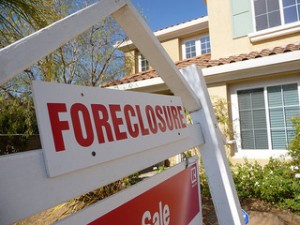 The current foreclosure crisis is painful for all of us, but especially for those who have lost their homes. The feeling of failure and disappointment can be overwhelming.
The current foreclosure crisis is painful for all of us, but especially for those who have lost their homes. The feeling of failure and disappointment can be overwhelming.
When a home is seized, it is the last resort — even the lender will be happy to reverse it if at all possible. If the loan is not paid, then the borrower loses the property, but that’s not the desired result. The bank would much rather the receive mortgage payments than take away someone’s home and put it up for auction.
The building of the Mishkan, or Tabernacle, has been in the focus of the Torah readings over the last few weeks. The Hebrew word “Mishkan” literally means a dwelling place, but the Midrash (Shemos Raba 51) reads the word homiletically as “Mashkon,” a collateral. G-d lifted His protection from the Temple twice in our history: the First Temple was destroyed by the Babylonians, and the Second by the Romans. Those tragic events, says the Midrash, are to be seen as a lender seizing the collateral on a loan that wasn’t paid. It was a national foreclosure against the Jewish People.
The Holy Temple was where mankind, Jews and non-Jews, experienced the ultimate closeness to G-d, in prayer and with personal and communal offerings. It may be difficult for us to imagine how important its presence was to the world. It was a treasure that was ours — if we were willing to live devoted to G-d’s will. It was taken by the Al-mighty because the Jewish People failed to fulfill the bargain.
We, as a nation, experienced the most painful of foreclosures over 2000 years ago. But as the lender, G-d wants us to have the Temple, He wants to have that closeness. Whether we’ve yet earned it or not, it’s important to remember that He wants it to be ours. With patient anticipation, He waits for us to return to Him and reclaim what is ours.
Good Shabbos!
Rabbi Mordechai Dixler
Program Director, Project Genesis – Torah.org





Excellent drash, the best that I’ve heard relating contemporary foreclosures to the Mishkan and its’ loss.
Robert M. Grossmann
Thank you, This is exactly what was prayed by Moses in Deuteronomy 5;29 “‘ 0 that there would be such a heart in them, that they would fear me, and keep all my commandments always, that it might be well with them, and with their children forever”
I thought the Mishkan, unlike the temples was never distroyed.
Mark, thanks for your accurate comments! It’s an interesting point, which I don’t believe I contradicted, but would have useful to highlight. The Mishkan itself was never destroyed and is hidden somewhere in the world. This actually supports the idea that the Mishkan is a Mashkon/collateral in that it’s merely been seized, not destroyed, and can be returned to the world at the appropriate time. I don’t know what role the Mishkan itself will play in the 3rd Temple, or whether it will have any role at all, but G-d is clearly holding it and keeping it safe for some purpose.